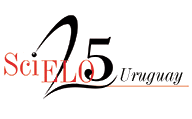Towards the quest for identity and the conquest of consciousness in the science fiction genre
humanity versus technology in Frankenstein (1818) and Westworld (2016)
DOI:
https://doi.org/10.25185/10.4Keywords:
Frankenstein, Westworld, Hubris, Otherness, Science fiction, TechnologyAbstract
Technological and scientific development are an essential part of the evolution of human beings as a species. Thus, their role in the relationship with humanity has been reflected in different artistic manifestations, including literature and film. In this article we will analyse the survival of what is considered the first work of science fiction: Frankenstein or The Modern Prometheus (1818), by Mary Shelley in the first season of one of the most successful science fiction series on television: Westworld (2016-2020). By analysing both, we will see how the fundamental issues raised by science fiction are embodied: humanity’s creative impulse, the ethical consequences of the act of creation and the creature’s need to give meaning to its existence. Furthermore, the analysis of aspects in the novel and the series such as the character traits of the creator and his relationship with his creatures will provide us with fundamental elements of value in demonstrating how the genre of science fiction has echoed from its origins key existential questions for the relationship between technology and humanity. Frankenstein and Westworld are evidence of this.
Downloads
References
AA. VV. Antología de leyendas universales. Barcelona: A.L. Mateos, 1991
AA. VV. El mito de Frankenstein. Barcelona: Timun Mas, 1996
Alonso Burgos, Jesús. Teoría e historia del hombre artificial: de autómatas, cyborgs, clones y otras criaturas. Madrid: Akal, 2017.
Asimov, Isaac. “Introducción: El aprendiz de Dios”. En El mito de Frankenstein, AA. VV., 9-15. Barcelona: Timun Mas, 1996.
Barceló, Miquel. La ciencia ficción. Barcelona: UOC, 2015.
Bennett, Betty T., y Charles E. Robinson. The Mary Shelley Reader. Oxford: Oxford University Press, 1990.
Butler, Marilyn. 1993. “Introduction”. En Frankenstein. 1818 Text, Mary Shelley, IX-LI. Oxford: Oxford University Press, 1994.
Cohen, Jeffrey Jerome. “Monster Culture (Seven Theses)”. En Monster Theory: Reading Culture, editado por Jeffrey Jerome Cohen, 3-25. Minnesota: University, 1996.
Cohen, Jeffrey Jerome. Monster Theory: Reading Culture. Minnesota: University, 2018.
Eagleton, Terry. Dulce violencia. La idea de lo trágico. Madrid: Trotta, 2011.
Evans, Martin J., ed. John Milton. Paradise Lost. Books IX-X. Cambridge: Cambridge University Press, 1989.
Festugière, André-Jean. J. La esencia de la tragedia griega. Barcelona: Ariel, 1986.
Gallardo-Torrano, Pere. “The Mcdonaldization of the Modern Prometheus: Michael Crichton’s Westworld and Jurassic Park”. Letterature d’America 24, nº 103-104 (2004): 137-159.
García Gual, Carlos. Figuras helénicas y géneros literarios. Madrid: Mondadori, 1991.
García Gual, Carlos. Diccionario de mitos. Madrid: Siglo Veintiuno, 2003.
Grimal, Pierre. Diccionario de Mitología Griega y Romana. Barcelona: Paidós, 1979.
Halberstam, Judith. Skin Shows: Gothic Horror and the Technology of Monsters. Durham, London: Duke University Press, 1995.
Haraway Donna. Simians, cyborgs and women: The reinvention of nature. London: Free Association, 1991.
Haraway, Donna. “A cyborg manifesto: Science, technology, and socialist-feminism in the late 20th century”. En The International Handbook of Virtual Learning Environments, editado por Joel Weiss, Jason Nolan, Jeremy Hunsinger y Peter Trifonas, 117-158. Netherlands: Springer, 2006.
Harrauer, Christine y Herbert Hunger. Diccionario de mitología griega y romana: con referencias sobre la influencia de los temas y motivos antiguos en las artes plásticas, la literatura y la música de Occidente hasta la actualidad. Barcelona: Herder, 2008.
Hindle, Maurice. Mary Shelley. Frankenstein or the Modern Prometheus. London: Penguin, 1994.
Jacobson, Brian R. “Ex Machina in the Garden”. Film Quarterly 69, nº 4 (2016): 23-34.
Jansson, Siv. “Introduction and Notes”. En Frankenstein, Mary Shelley, VII-XXV. Hertfordshire: Wordsworth Classics, 1993.
Joshua Essaka. Mary Shelley “Frankenstein”. Tirril: Humanities-Ebooks, 2007.
Kaufmann, Walter. Tragedia y filosofía. Barcelona: Seix Barral, 1978.
Kitson, Peter J. “The Romantic Period, 1780-1832”. En English Literature in Context, editado por Paul Poplawski, 274-352. Cambridge: Cambridge University Press, 20172.
Martin, René, dir. Diccionario Espasa. Mitología griega y romana. Madrid: Espasa-Calpe, 1996.
Netolicky, Deborah M. “Cyborgs, desiring-machines, bodies without organs, and Westworld: Interrogating academic writing and scholarly identity”. KOME An International Journal of Pure Communication Inquiry 5, nº1 (2017): 91-103. doi: 10.17646/KOME.2017.16
Poplawski, Paul., ed. English Literature in Context. Cambridge: Cambridge University Press, 20172.
Seaman-Grant, Zoe E. “Constructing Womanhood and the Female Cyborg: A Feminist Reading of Ex Machina and Westworld”. Honors Theses. 202. Bates College, 2017. http://scarab.bates.edu/honorstheses/202
Shelley, Mary. Frankenstein. Hertfordshire: Wordsworth Classics, [1818] 1993.
Shelley, Mary. Frankenstein. 1818 Text. Oxford: Oxford University Press, [1818] 1994.
Spark, Muriel. Mary Shelley. Barcelona: Lumen, 1997.
Tatar, Maria. Off With Their Heads! Fairy Tales and the Culture of Childhood. Princeton: Princeton University Press, 1992.
Vernant, Jean-Pierre. El universo, los dioses, los hombres. El relato de los mitos griegos. Barcelona: Círculo de Lectores, 2001.
Winckler, Reto. “This Great Stage of Androids: Westworld, Shakespeare and the World as a Stage”. Journal of Adaptation in Film and Performance 10, nº 2 (2017): 169-188.
Published
How to Cite
Issue
Section
License
Copyright (c) 2021 Raquel Fuentes Martínez

This work is licensed under a Creative Commons Attribution 4.0 International License.





























 This work is under a
This work is under a 